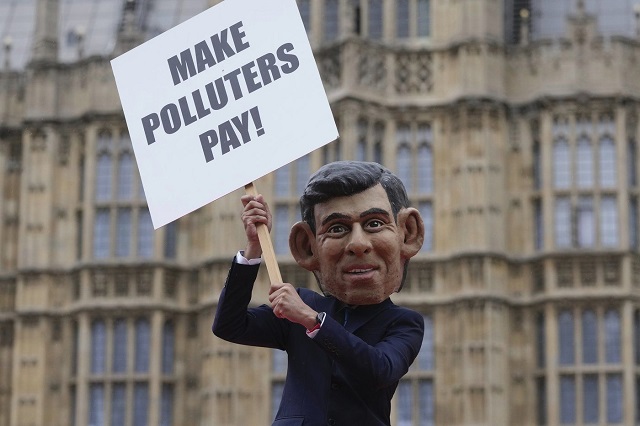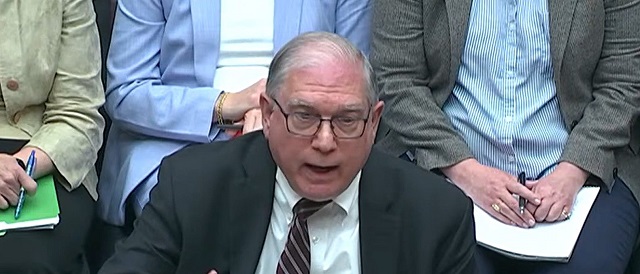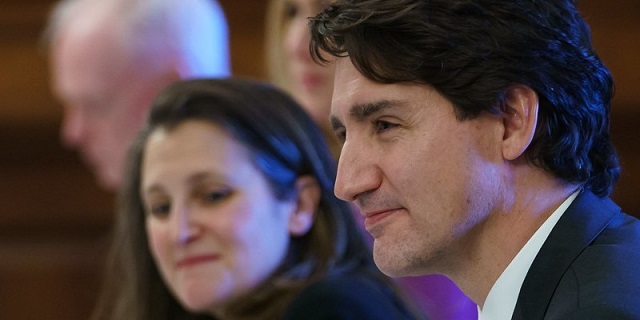Business
UK leader Rishi Sunak signals plan to backtrack on some climate goals

Oxfam’s Rishi Sunak ‘big head’ protests outside the Parliament in London, Tuesday, Sept. 19, 2023. On the eve of the UN Climate Ambition Summit, Oxfam’s Rishi Sunak ‘big head’ staged a protest on top of a giant oil barrel, amongst dozens of real oil drums, supporting the Make Polluters Pay campaign. Calling for oil and gas giants, such as BP and Shell, to pay more tax to raise critical funds to help communities devastated by climate change. (AP Photo/Kin Cheung)
By Jill Lawless in London
LONDON (AP) — Prime Minister Rishi Sunak is preparing to water down some of Britain’s environmental commitments on Wednesday, saying the country must fight climate change without penalizing workers and consumers.
The news drew wide criticism from political opponents, environmental groups and large chunks of U.K. industry, but was welcomed by sections of the governing Conservative Party.
Sunak issued a late-night statement Tuesday in response to a BBC report saying the prime minister is considering extending deadlines for bans on new gasoline and diesel cars — currently set for 2030 — and on new natural-gas home heating, due in 2035.
Sunak said he would set out a “proportionate” approach to the environment. He summoned his Cabinet to an unscheduled conference call to discuss the plans ahead of a speech hastily rescheduled for Wednesday afternoon. It had been due later in the week.
“For too many years, politicians in governments of all stripes have not been honest about costs and trade-offs,” Sunak said. “Instead, they have taken the easy way out, saying we can have it all.”
Sunak did not confirm details of his announcements. He said he would keep a promise to reduce the U.K.’s emissions of climate-warming greenhouse gases to net zero by 2050, but “in a better, more proportionate way.”
The government has previously boasted of Britain being a leader in cutting carbon emissions. U.K. greenhouse gas emissions have fallen by 46% from 1990 levels, mainly because of the almost complete removal of coal from electricity generation. The government had pledged to reduce emissions by 68% of 1990 levels by 2030 and to reach net zero by 2050.
But with just seven years to go until the first goalpost, the government’s climate advisers said in June that the pace of action is “worryingly slow.” Sunak’s decision in July to approve new North Sea oil and gas drilling also spurred critics to question his commitment to climate goals.
Former Prime Minister Boris Johnson, who brought in the 2030 gasoline car target when he was leader, said businesses “must have certainty about our net-zero commitments.”
“We cannot afford to falter now or in any way lose our ambition for this country,” he said.
News of plans to backtrack broke as senior politicians and diplomats from the U.K. and around the world — as well as heir to the British throne Prince William — gathered at the United Nations General Assembly in New York, where climate is high on the agenda. Sunak is not attending, sending his deputy instead.
Greenpeace U.K. policy director Doug Parr said the prime minister was “taking the public for fools.”
“Rowing back on home insulation and commitments to help people move away from gas will ensure we stay at the mercy of volatile fossil fuels and exploitative energy companies,” Parr said.
Environmentalists were not the only ones blindsided by the move. Automakers, who have invested heavily in the switch to electric vehicles, expressed frustration at the government’s apparent change of plan.
“We’re questioning what is the strategy here, because we need to shift the mobility of road transport away from fossil fuels towards sustainable transport,” said Mike Hawes, chief executive of the Society of Motor Manufacturers and Traders, an industry body.
Ford U.K. head Lisa Brankin said the company had invested 430 million pounds ($530 million) to build electric cars in Britain.
“Our business needs three things from the U.K. government: ambition, commitment and consistency. A relaxation of 2030 would undermine all three,” she said.
Analyst Tara Clee of investment firm Hargreaves Lansdown said the retreat could undermine Britain’s hard-won reputation for leadership on green technology, threatening the wider economy.
“The market has been directing capital to the net-zero transition and has been working in good faith,” Clee said. “These changes send a message that nothing is set in stone, and committing in earnest to a movable goalpost could be a major business risk.”
Britain’s Conservatives have been openly reassessing their climate change promises after a special election result in July that was widely seen as a thumbs-down from voters to a tax on polluting cars.
The party, which trails behind the Labour opposition nationwide, unexpectedly won the contest for the suburban London Uxbridge district by focusing on a divisive levy on older vehicles imposed by London’s Labour mayor, Sadiq Khan. Some Conservatives believe axing green policies is a vote-winner that can help the party avoid defeat in a national election due by the end of next year.
“We’re not going to save the planet by bankrupting the British people,” Home Secretary Suella Braverman said Wednesday.
But Conservative lawmaker Alok Sharma, who chaired the COP26 international climate conference in Glasgow in 2021, warned that it would be “incredibly damaging … if the political consensus that we have forged in our country on the environment and climate action is fractured.”
“And frankly, I really do not believe that it’s going to help any political party electorally which chooses to go down this path,” he told the BBC.
Automotive
Forget Tariffs: Biden Should Look to Domestic Mining to Thwart Chinese EVs

Fr0m Heartland Daily News
By Rick Whitbeck
The Biden administration’s decision to raise tariffs on Chinese-manufactured electric vehicles, steel, computer chips, and other technological products is the epitome of a penny wise and a pound foolish.
To much of the nation, the news was a reelection flip-flop, or an attempt to prop up the electric vehicle industry Biden has prioritized since he took office, as part of his green agenda. The international supply chain for electric vehicles isn’t going to magically stop running through the Chinese Communist Party anytime soon.
If Biden really wanted to curb Chinese geopolitical power, he would make fundamental changes to his administration’s history of attacking domestic mining opportunities. Allowing development of copper, graphite, nickel, cobalt, and other critical and strategic minerals right here at home would go much further than imposing tariffs.
Biden has demonstrated affinity for promoting “net zero” policies and forcing transitions away from traditional energy supplies of oil, gas, and coal. In a nutshell, the attacks on domestic mining projects seem completely counterproductive.
According to the International Energy Agency, staggering quantities of subsurface elements will need to be mined by at least five times their current worldwide production by 2040 to meet the Biden administration’s green energy goals. Graphite, cobalt, and lithium all will be needed in quantities exceeding 25 times (or more) their current supplies. In the next quarter century, we will need twice as much copper than has been produced in the last 3,000 years. All of which is impossible when Biden won’t let us dig.
The U.S. has tremendous opportunities to have our own mineral resources. Yet, the Biden administration has thwarted their development at nearly every turn. For example, massive copper and nickel deposits could be developed in Minnesota at the Twin Metals and Duluth Complex projects, but Biden has ordered each of them off-limits for development. The Resolution Copper prospect in Arizona met a similar fate, with the Department of Interior placing on “indefinite hold” its approval.
The Western Hemisphere’s largest copper prospect is Alaska’s Pebble Mine. Kowtowing to environmental extremists—and ignoring a clean U.S. Army Corps of Engineers’ Final Environmental Impact Statement—the Environmental Protection Agency continues to stymie progress on a deposit worth more than $500 billion. All the while shutting down the possibility of 700 full-time jobs in an area of rural Alaska that has seasonal unemployment exceeding 20%.
Alaska has been the target of more than 60 administrative and executive orders targeting its resource-based economy since Biden assumed office. One of the most recent took place on Earth Day, when a congressionally-authorized road to the Ambler Mining District—an area rich in copper, zinc, and other strategic and critical minerals—was stopped by the Department of Interior.
Just like with the Resolution mine in Arizona, the Interior Department used “Indigenous opposition” as its deciding factor, even though many villages and tribes closest to the mining district publicly support the project and its future employment opportunities. In Alaska, the Biden administration literally blocks the road to the minerals Biden’s tariffs claim to protect.
Alaska’s governor, Michael Dunleavy, along with its entire congressional delegation, has been openly critical of the continued hypocrisy of the Biden administration when it comes to talking “net zero” and acting with vigor to oppose domestic mining projects. The same response has come from many within the Minnesota and Arizona congressional community. They’ve been unable to break through to the administration, as Team Biden chooses to listen to eco-activists and career bureaucrats with an anti-development agenda.
What would hurt China, empower America, and begin to chip away at the global imbalance would be mining and processing our crucial minerals and elements domestically. Let’s see if the Biden administration wises up to that fact, or if America tires of being subservient to the CCP and makes fundamental changes to federal leadership in November.
Rick Whitbeck is the Alaska State Director for Power The Future, a national nonprofit organization that advocates for American energy jobs and fights back against economy-killing and family-destroying environmental extremism. Contact him at [email protected] and follow him on X (formerly Twitter) @PTFAlaska
This article was originally published by RealClearEnergy and made available via RealClearWire.
To read more about domestic mining to escape reliance on China, click here.
To read more about clean energy and mining, click here.
Business
Government red tape strangling Canada’s economy

From the Fraser Institute
The cost of regulation from all three levels of government to Canadian businesses totalled $38.8 billion in 2020, for a total of 731 million hours—the equivalent of nearly 375,000 fulltime jobs.
One does not have to look too deeply into recent headlines to see that Canada’s economic conditions are declining and consequently eroding the prosperity and living standards of Canadians. Between 2000 and 2023, Canada’s per-person GDP (a key indicator of living standards) has lagged far behind its peer countries. Business investment is also lagging, as are unemployment rates across the country particularly compared to the United States.
There are many reasons for Canada’s dismal economic conditions—including layer upon layer of regulation. Indeed, Canada’s regulatory load is substantial and growing. Between 2009 and 2018, the number of regulations in Canada grew from about 66,000 to 72,000. These regulations restrict business activity, impose costs on firms and reduce economic productivity.
According to a recent “red tape” study published by the Canadian Federation of Independent Business (CFIB), the cost of regulation from all three levels of government to Canadian businesses totalled $38.8 billion in 2020, for a total of 731 million hours—the equivalent of nearly 375,000 fulltime jobs. If we apply a $16.65 per-hour cost (the federal minimum wage in Canada for 2023), $12.2 billion annually is lost to regulatory compliance.
Of course, Canada’s smallest businesses bear a disproportionately high burden of the cost, paying up to five times more for regulatory compliance per-employee than larger businesses. The smallest businesses pay $7,023 per employee annually to comply with government regulation while larger businesses pay a much lower $1,237 per employee for regulatory compliance.
And the Trudeau government has embarked on a massive regulatory spree over the last decade, enacting dozens of major regulatory initiatives including Bill C-69 (which tightens Canada’s environmental assessment process for major infrastructure projects), Bill C-48 (which restricts oil tankers off Canada’s west coast) and electric vehicle mandates (which require all new cars be electric by 2035). Other examples of government red tape include appliance standards to reduce energy consumption from household appliances, home efficiency standards to reduce household energy consumption, banning single-use plastic products, “net zero” nitrous oxide emissions regulation, “net zero” building emissions regulations, and clean electricity standards to drive net emissions of greenhouse gases in electricity production to “net zero” by 2035.
Clearly, Canada’s festooning pile of regulatory red tape is badly in need of weeding. And it can be done. For example, during a deregulatory effort in British Columbia, which appointed a minister of deregulation in 2001, there was a 37 per cent reduction in regulatory requirements in the province by 2004.
Rather with plowing ahead with an ever-growing pallet of regulations to be heaped upon Canadian businesses and citizens, government should reach for the garden shears and start reducing the most recent regulatory expansions (before they have time to do too much harm), and then scour the massive strangling forest of older regulations.
Whacking through the red tape would go a long way to help Canada’s economy out of its dismal state and back into competitive ranges with its fellow developed countries and our neighbours in the U.S.
Author:
-

 Indigenous2 days ago
Indigenous2 days agoNo accounts on $7.9 million dollar ‘Truth’ Fund
-

 COVID-192 days ago
COVID-192 days agoHouse COVID Committee Confirms What We Have Long Suspected — The Feds Really Hate Transparency
-

 Fraser Institute1 day ago
Fraser Institute1 day agoFederal government should have taken own advice about debt accumulation
-

 Great Reset2 days ago
Great Reset2 days agoRepublican governors sign letter opposing WHO treaty
-

 Health2 days ago
Health2 days agoUniversity of Toronto Study Finds Teen Marijuana Use Tied To Dramatic Increased Risk Of Psychosis
-

 MacDonald Laurier Institute1 day ago
MacDonald Laurier Institute1 day agoToronto’s “Sankofa Square” – The terrible folly and historic injustice of erasing the legacy of abolitionist Henry Dundas
-

 Automotive19 hours ago
Automotive19 hours agoForget Tariffs: Biden Should Look to Domestic Mining to Thwart Chinese EVs
-

 Agriculture13 hours ago
Agriculture13 hours agoResearch Suggests Cattle Raising May Reduce Emissions









